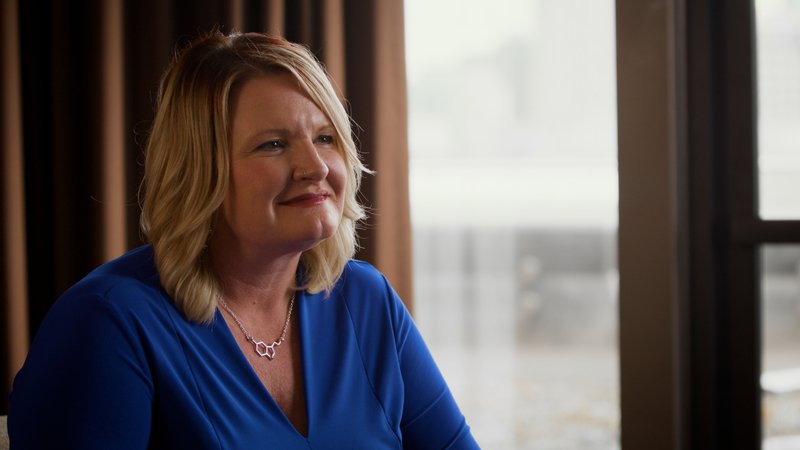Back when Brandy Matthews, M.D., was seeing Alzheimer’s disease patients as a behavioral neurologist, she found the most important thing she could offer was information.
What is my diagnosis? What does it mean? What can we do? They would ask. And that last one was particularly tough to answer.
“The resiliency of patients and caregivers is amazing,” Matthews said in an interview with Fierce Biotech.
Now, Matthews is overseeing a team at Eli Lilly that’s hoping to soon launch donanemab as the second new Alzheimer’s treatment believed to actually address the underlying cause of the devastating neurological disorder. The Indianapolis Big Pharma is following in the footsteps of Biogen, which got Aduhelm approved under the accelerated review pathway based on biomarker data in June after decades of a new-medication drought.
Matthews is the medical launch leader for donanemab in Lilly’s global medical affairs organization. She came to Lilly six years ago after a career caring for patients with dementia and their caregivers as well as educating resident medical students and other physicians on neurodegenerative diseases.
Neuroscience attracted Matthews “at the foundation,” because she wanted to answer her own questions, like, “Why do I experience freewill?” or “Why does blues music make me happy?” she said.
“As I began to think of how do I answer these questions for myself, I had the good fortune to be caring for patients with neurodegenerative diseases, and I just fell in love with their stories,” she said. “It sort of shifted my passion from answering these very internal ‘What is the meaning of life?’ questions to be more externally focused, to say, like, ‘How can I help other people live a great story?’”
When Lilly came calling, Matthews found the progression natural: She took on a role where she could translate clinical research and medical science into clinical practice.
“There’s oftentimes a barrier in distilling science for non-scientists,” Matthews said.
Her tenure at Lilly began with supporting efforts for the still unapproved Alzheimer’s med solanezumab. But then an opportunity came up to work on something that was headed for approval in the near term: the now successful migraine medicine Emgality. Matthews got the chance to learn “what it’s like to launch a medicine that has great efficacy.” She sees parallels between the unmet need in migraine and that in Alzheimer’s.
“The intent for me was that, there will be a day when we have a medicine that works in Alzheimer’s disease and so in the interim, I can support the patients and the unmet medical need in the migraine space, learn these skills and then translate them into the space of neurodegeneration,” Matthews said. “We’ve had the great fortune that this opportunity has arisen sooner than many people would have predicted.”
That opportunity, of course, is the FDA cracking open a window for accelerated approvals of Alzheimer’s treatments based on biomarker data before true efficacy is revealed in clinical studies. Matthews has now shifted back to the Alzheimer’s portfolio to work toward launching donanemab.
“There’s definitely a sense of excitement that I believe is associated with any launch, but with this one, it’s amplified,” she said.
This will not be a typical drug launch. Lilly has gotten the chance to sit back and watch the troubles Biogen has faced rolling out Aduhelm and has been taking notes. The accelerated approval pathway—while a great opportunity—makes everything go faster, which is a challenge in itself.
“The advent of an accelerated approval pathway has really shifted the more historical approach to preparing for launch,” Matthews said. “The timeline is contracted to help put all the pieces of the puzzle together to ensure that the medication is accessible to patients.”
Lilly has always had a sense of urgency in Alzheimer’s, according to Matthews. It’s hard not to note, however, that donanemab appeared to be on the back burner, with no regulatory path forward, until Biogen crashed through the FDA gates. Regardless, Lilly has its foot on the gas now. The FDA has granted an accelerated review, and the therapy will soon be pitted against Aduhelm in a limited head-to-head study.
Moreover, Lilly plans to beat Biogen to the punch by delivering true efficacy data on donanemab in 2023—likely before its rival even gets an FDA-required phase 4 confirmatory trial underway.
“Here we have this amazing opportunity with a new pathway toward approval to potentially get this medicine to patients,” Matthews said. “So for me, that’s the biggest shift because the needs are the same.”
Alzheimer’s remains a disease that is not very well understood compared to others, and diagnostic options for patients continue to lag, according to Matthews. These roadblocks have not been lowered just because the FDA said it would consider therapies like donanemab.
Matthews wants to see a new generation of women pick up neurology to push the science forward. She envisions a future where Alzheimer’s patients have multiple options and combination treatments are available to address their specific needs.
“I didn’t have a large number of role models in STEM as I was growing up, and so I think it’s amazing to be in an environment where I have those role models, but I also humbly accept some responsibility of being a role model myself,” Matthews said. “When you see other women in leadership roles and doing amazing things, then that expands your inspiration set.”

